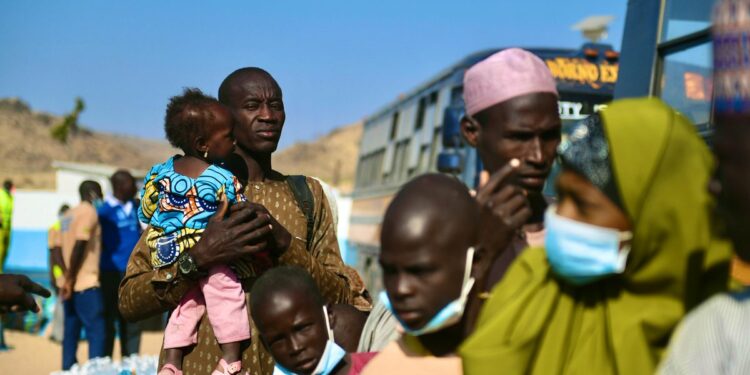Cameroon is home to 7.5 million people living in poverty and over 2 million who have been forcibly displaced by conflict. In the 10 years since its launch, the Social Safety Net Project (SSNP) has reached over 2.3 million people in all 10 regions of the country, helping them meet basic needs, invest in human capital, and lift themselves out of poverty.
Read More: Rwanda, Benin Talk Military Cooperation Over Border Security
The project has also established the building blocks of an inclusive and adaptive safety nets system that the government can leverage to support the poor and respond to shocks.
Standing proudly in front of her small shop filled with colorful fabric, Maimouna is happy that her life took a positive turn. One in four people in Cameroon live below the national poverty line. Despite recent economic growth, poverty and inequality remain high in Cameroon, especially affecting those in rural areas where half of the population is poor.
The Social Safety Net Project (SSNP) was launched in 2013 to provide cash transfers and public works employment to the poorest households. Before, the existing safety nets programs in the country were not appropriately designed to address either chronic or transient poverty. The country had several small-scale and ad hoc safety net programs ranging from school feeding and fee waivers to small cash transfers for the indigent, and some temporary food emergency assistance.
Read More: Why China Is Building Africa’s New Parliaments
With the SSNP, the World Bank successfully assisted the government in building basic safety net systems and reaching almost a third of the poor with life-changing interventions. The financing project included three interventions: (a) regular cash transfers and accompanying measures; (b) emergency cash transfers; and (c) labor-intensive public works.
The project immediately showed wide-ranging positive impacts: beneficiaries were better able to meet basic consumption needs as well as to cover health and education costs like Maimouna and her family. They also made productive investments in agriculture and/or micro-enterprises, were more likely to send their children to school, and obtained civil registration documents.
The scope of SSNP was later expanded to provide emergency support to refugees fleeing conflict in neighboring Central African Republic. Just like Maimouna, more than 19,143 refugee households have benefitted from SSNP support when they most needed it.
Read More:Nairobi Ranked 4th Richest African City, 74th Globally
The project’s unique ability to reach households has made it a preferred option for crisis response. During the COVID-19 pandemic, the government leveraged SSNP’s systems to deliver support to 80,000 urban households experiencing adverse economic effects.
Ernest Elema one of the beneficiaries who lives in Douala, almost went bankrupt when the pandemic hit. “The emergency cash transfer I benefitted from helped me expand my activities as a shoemaker and I was able to start a new business selling coal and open a call-box”.









